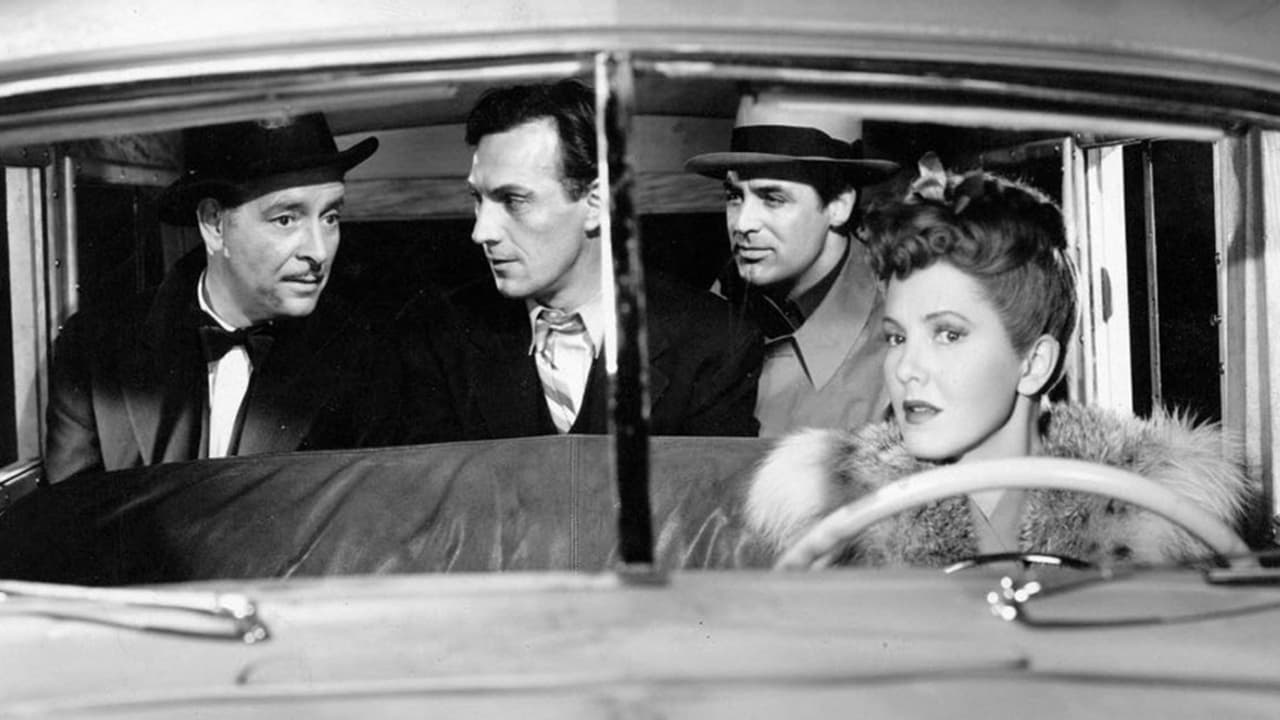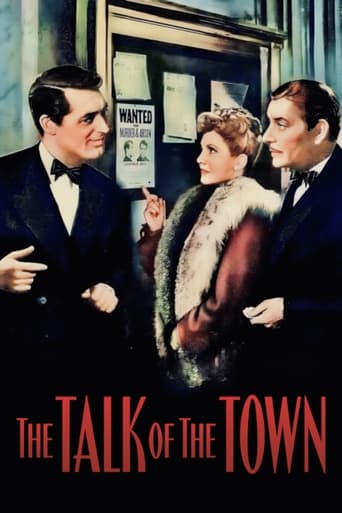Perry Kate
Very very predictable, including the post credit scene !!!
Grimossfer
Clever and entertaining enough to recommend even to members of the 1%
Patience Watson
One of those movie experiences that is so good it makes you realize you've been grading everything else on a curve.
Delight
Yes, absolutely, there is fun to be had, as well as many, many things to go boom, all amid an atmospheric urban jungle.
Armand
not great but nice. not special but seductive for a smart story, use of humor and romanticism, fake tension and Cary Grant. interesting for Rex Ingram and for the nuances of role exploited by Ronald Colman. a film with large ambitions who remains only another comedy about heroes and love. nothing new but amusing for the small scenes who seems be ambiguous or for the classic end, for the unrealistic events and for the good intentions. nothing memorable but useful for remind the flavor of lost period. that is all. a film with ordinary mistakes and drops of glamor. is it enough ? yes, in this case. because not the artistic virtue is the most important thing but the smell of a fragment from a golden age.
policy134
Like some of the other participants on this board, I too, am surprised that this isn't more revered, or for that matter, remembered. I have not seen it on any top 100 list on AFI or elsewhere.Not to sound like somebody with a schoolboy crush, but could you find another actress who is more charming than Jean Arthur. She is definitely one of the best actresses of the 30s and 40s. Don't get me wrong, there are other superb actresses like Bette Davis and Katharine Hepburn of those years, but there is something about Jean Arthur that I can't resist. Maybe it's that voice? The memorable thing about this film is that you are a little thrown by the opening scene and what follows after. Grant, I can reveal, is wanted for murder and hides out with school chum, Arthur. Matters are complicated by tenant, Colman. At first, you think this is going to be a bedroom farce but it suddenly shifts tone to highbrow drama. Also, I was a little thrown by Grant's sudden appearance in front of Colman after hiding out in the attic. Colman doesn't look that surprised either.Like I said the film shits tone many times. At first, you think it's going to be a gritty crime drama, then it shifts to the aforementioned bedroom escapades and then just as suddenly, we are in the middle of philosophical discussion about law. But that's okay. I rather enjoyed the chemistry between Colman and Grant in those scenes.What is far less acceptable, is the tired convention of which man will the woman end up with. It is not only a cliché, but it is more than a bit awkwardly played out here. Still, you can't have Arthur dump them both, so I think that the filmmakers made the right decision of making it the more popular of the two, at that time at least.If you are confused by this commentary, don't worry. Wait 'till the next one.
FilmRap
How was the country diverting itself from heart wrenching reports from the battle front of early World War II ? Going to the movies was one way and in 1942 that might mean seeing this movie, which was nominated for 6 Academy awards including Best Picture. Leopold Dilg (Cary Grant) is being accused of burning down the town factory when all he did was speak out against the bad conditions there. Professor Michael Lightcap (Ronald Coleman), a legal scholar who is destined for the Supreme Court, happens to be in town and is planning to rent Miss Nora Shelley's (Jean Arthur) house where Dilg is hiding out after he broke out of jail when he realized he wasn't going to get a fair trial since the owner of the factory (who it turns out arranged the fire) has turned the local town into a blood thirsty mob out for Dilg. At first it looks like it is going to be light comedy with hiding, close calls, police and blood hounds almost catching the fugitive and then it seems to be turning into a law and order theme. When Dilg pretends he is Joseph the gardener, he and Lightcap actually get to know each other and really like each other. In fact, these two men have a strong bonding as did Lightcap and his black man servant (Rex Ingram) who shed a few tears when his boss was going to shave his beard. As touching as this man to man stuff may have been, it is clear that the real romantic feelings are coming from Miss Shelley (attractive lovable wide-eyed Arthur). She is falling in love but it really isn't clear which of these leading men it might be with. The finale of the movie while somewhat overly dramatic has s a moving speech by Lightcap (as Coleman really gets into it) and he emotionally reminds everyone about the American form of justice (and without saying it is reminding everyone in the audience about one of the reason that we were fighting the war). There was the final touch where we almost don't know who Miss Shelley is going to end up with (could this be the first time Cary Grant doesn't win the girl?) and all ends well. FilmRap.net
jc-osms
Bit of a hotch-potch for me, this war-time George Stevens' production, though there was much to enjoy along the way. The problem for me was that I wasn't sure what kind of film it was trying to be - thriller, whodunit, romance, philosophical treatise, drama, even comedy and felt it fell between all these stools.It starts excellently with a grim, noirish introduction as Cary Grant's political agitant Leopoldo Dilg, a handy scapegoat effects a gritty, rain-soaked night-time escape from the accusing and chasing authorities when the munitions factory he works at goes up in flames, apparently killing the foreman. Then, however, it veers into farce with Grant's unwelcome stowaway routine at Jean Arthur's old place just happening to clash with soon-to-be-Supreme-Court-Justice Ronald Colman's tenancy of the place. Cue humorous comings and goings as Arthur attempts to conceal Grant, before she comes clean (sort of) with the cold, donnish Colman and introduces Grant to him as her surprisingly deep and free-thinking gardener, with whom Colman soon comes to converse on a highly intellectual and political level over games of chess. Later of course, both men influence each other's initially polarised point of view as we get to the predictable resolution with the romantic triangle between the three squared just as unsurprisingly too.The best parts of the film for me, were the cinematography and the acting of Grant and Arthur. I like Colman as an actor, but his part is poorly written as he's made out to be a sort of intellectual Longfellow Deeds come down from his ivory tower to get humanised by the vivacious Arthur and loquacious Grant. Comedy doesn't appear to be his forte, at least on this showing. The plotting is however too fantastical and muddled and escapes the director's attempts to pull it together coherently, to such an extent that I almost suspected studio tinkering with the left-leaning polemic of the piece.

